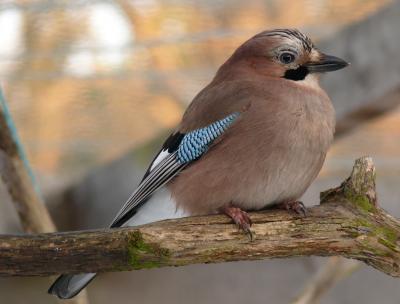The researchers found that if a Eurasian jay is caching and hears but does not see another bird nearby it will hide its cache in the less noisy substrate (for this study, sand rather than gravel). This is presumably done to avoid drawing unwanted attention from potential thieves that might then try to view the location of the cache.
In the second experiment, the scientists measured how many times the subjects vocalised depending on whether they were watching another jay caching, another jay stealing caches that the subject had made themselves, another jay that was not caching or stealing, or an empty compartment that contained no jay.
They found that pilfering birds vocalise less when spying on another bird caching compared to when they are alone. The researchers believe that the jays are quieter in order to prevent their presence becoming known to the caching bird that might otherwise hide their cache elsewhere or stop hiding food.
Rachael Shaw, a PhD student at the University of Cambridge and co-author of the paper, said: "As humans, we understand that other people can hear what we are doing, but there is only limited evidence for this ability in other animals. Our study of Eurasian jays is the first to report that a member of the crow family will suppress acoustic information by vocalising less when spying on another individual that is caching."

Eurasian jays change strategies to prevent others from stealing food and to improve their chances of absconding with other birds caches.
(Photo Credit: Rachael Shaw)

This is an Eurasian jay.
(Photo Credit: Kylie Millar)
Source: University of Cambridge